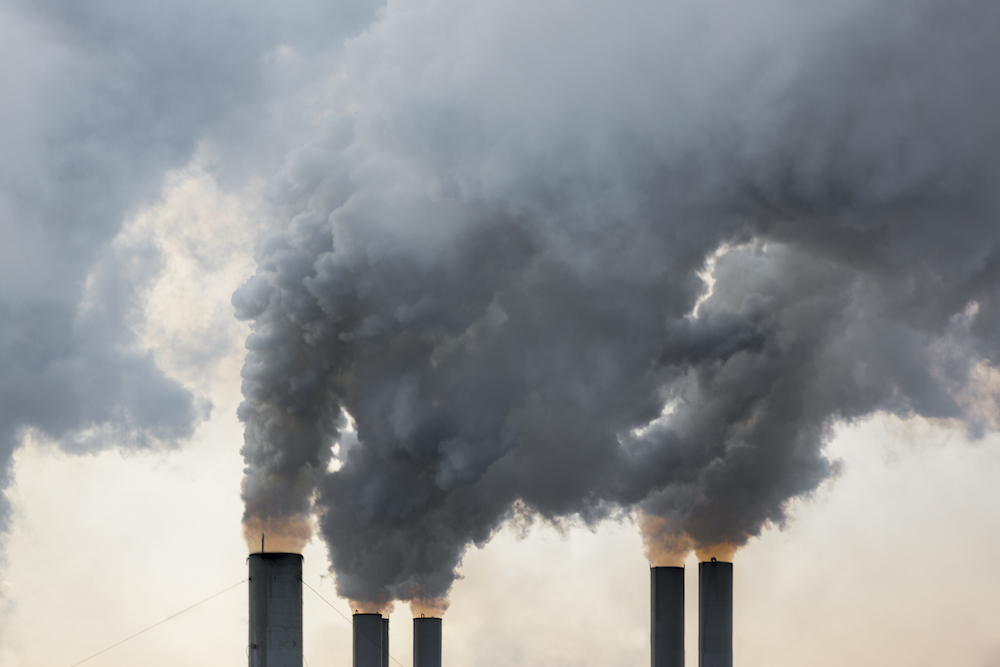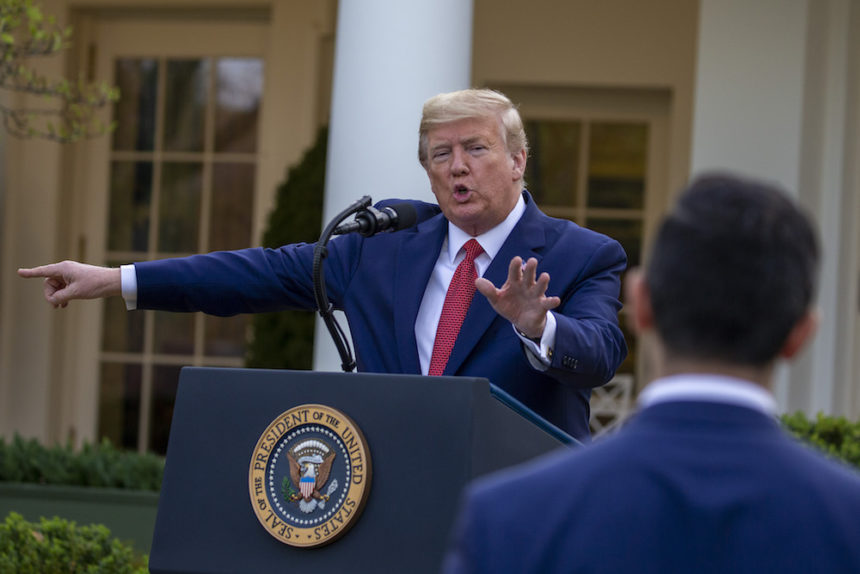Hi everyone. I hope you found time this weekend to unwind, binge watch Tiger King and FaceTime your family and friends. As many of us begin our second week of WFH, frontline workers continue going out into the world to save lives — and neither of our realities are changing anytime soon. It’s truly difficult to know the degree to which we should be panicking or feeling hopeful that stimulus packages, technological innovations and the race for a vaccine will put an end to all this horror. But if there’s one person you listen to, let it be Dr. David Price — a critical care pulmonologist at Weill Cornell Hospital in New York City. His non-histrionic explanation of the virus and how to avoid getting it will make you feel safer and calmer – something we could all use, especially on a Monday.
Today’s Coronavirus Briefing is 1,199 words and will take you five minutes to read. Register for the newsletter here.
After the weekend
- New York State recorded the largest one-day jump in coronavirus deaths on Sunday. The city’s 911 has become overwhelmed.
- President Trump extended the U.S.’s initial 15-day social distancing plan to April 30. “Peak death” is expected to be two weeks away.
- Spain and Italy, which account for more than half of the world’s death toll from COVID-19, continue seeing hundreds of deaths a day despite lockdowns.
- On a positive note, South Korea’s recoveries now outpace and outnumber infections. On Saturday, the country reported additional hopeful news that for the first time since the epidemic hit, the total number of people recovered exceeded the number in quarantine.
- On Friday, rain fell as Pope Francis stood in an empty St. Peter’s Square leading a prayer of hope for the virus to end.
The Takeaway:
Death and devastation continue apace. For anyone who didn’t take the virus seriously before, there is no denying it now. Prayer can’t hurt.

Fly the plan
“Plan the flight and fly the plan. But don’t fall in love with the plan. Be open to a changing world and let go of the plan when necessary so that you can make a new plan” — Laurence Gonzales, “Deep Survival”
This is advice we must all now heed. And for those of you who have not read this unbelievable book, now may be the time. It’s going to take Herculean efforts for every sector to let go of what was, in order to find what might be. Here’s a look at what leaders are doing to adapt quickly while maintaining stability in this time of great uncertainty.
- Clarkson Hine, SVP of corporate comms and public affairs at Beam Suntory, spoke to PRWeek US editors Steve Barrett and Frank Washkuch about the spirit industry’s resilience in this episode of The PR Week podcast.
- In McKnight’s Senior Living, Tammy Marshall urged nurses to lean into the Code of Ethics for Nurses created in 1950. Despite the situation they’re currently facing being something that could “never be taught through theory or lab,” she notes that nurses have the map for navigating this demanding time.
- Thomas Moore in PRWeek US, asked six agency heads their thoughts on how to lead and inspire employees in unprecedented situations. A “support and solve mentality” seems to be part of everyone’s plan.
- Charlotte Hoare & Aaron King wrote about the importance of staying on brand instead of being blinded by rising engagement numbers for Campaign UK.
The Takeaway:
We can learn from the past while leaning into the future. Creativity and communication are key to weathering this storm. What you do today, will define who you are and what impact are you going to have.

I have questions
What are the specifics of furloughing staff? How does working from home change the way we work? Is there anything good that can come from all this disruption? These questions and more are answered below.
- Maggie Baska for People Management asked experts to answer some key FAQs about the U.K. government’s new job retention support scheme, including questions about furloughing staff, employee consent, grants and non-coronavirus-related redundancies.
- Horticulture Week’s Gavin McEwan tapped Fresh Produce Consortium chief executive Nigel Jenney for a look at the market disruption brought on by COVID-19, citing the challenges as well as the opportunities for U.K. growers.
- Amy Novotney summarized the hour-long webinar focused on COVID-19 and financial market uncertainty that was hosted by the National Investment Center for Seniors Housing & Care. The main takeaway? Transparency and patience are going to be essential for senior living organizations hoping to survive the pandemic.
- The inimitable Lois Bowers interviewed National Investment Center for Seniors Housing and Care Chief Economist, Beth Burnham Mace, to get her insights on how COVID-19 could affect senior living.
- Campaign UK’s new video series takes an intimate look at how its editorial team is adapting to working from home.
The Takeaway:
While platitudes like “we’re going to come out of this stronger” are more hopeful than factual, there are some upsides emerging from this viral disruption — new markets, intensified grit and more creative relationships.

Weathering the storm
While it seems like there’s no news except pandemic news, issues we faced before the crisis are alive and well. Today, we take a look at how COVID-19 is affecting environmental policies and what we can learn from the virus to help address climate change.
- Simon Pickstone takes a look at how COVID-19 is upending 2020’s environmental agenda for ENDS Report. The examination includes the potential effects of the U.K. and E.U.’s relationship being frozen as policymakers deal with the pandemic, the fate of this year’s U.N. climate talks in Glasgow and whether further economic stimulus by the government would be compatible with the U.K.’s environmental and climate goals.
- Windpower Monthly reports that the American Wind Energy Association and other clean energy trade bodies had called for the extension of tax credits for renewable energy and storage projects, citing disruption to project schedules and a sudden reduction of available tax equity to finance energy projects.
- This article in The Conversation looks at the lessons we can learn from the current health crisis for tackling planetary warming. While coronavirus and climate change seem like strange bedfellows, there has been significant economic “degrowth” (a proposed slowing of growth in sectors that damage the environment, such as fossil fuel industries) — a transition some academics and activists have claimed necessary to address climate change.
- And just so we don’t forget how powerful a single voice can be — much less a single teenage voice — consider watching this video of Greta Thunberg’s climate advocacy accomplishments, ending with her appearance on Ellen.
The Takeaway:
Climate change is unconcerned with COVID-19. While the virus is, for good reason, on the top of everyone’s mind, we still need to ensure we have a habitable planet to live in post-vaccine.
Solidarity in solitude
We can still find beauty and humor in the world. Here’s some of each:
- Unable to travel, National Geographic photographers focus on family, empty streets and walks in the wild.
- Painted reflections of too much time at home.
- How not to order pizza during a pandemic.
See you tomorrow — same bat time; same bat channel.








